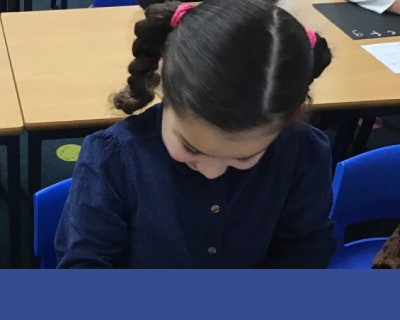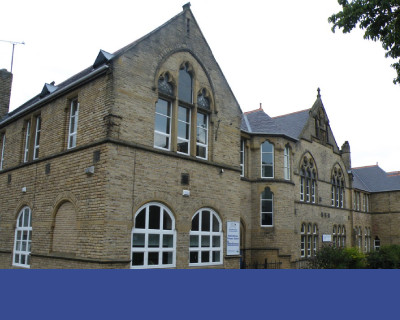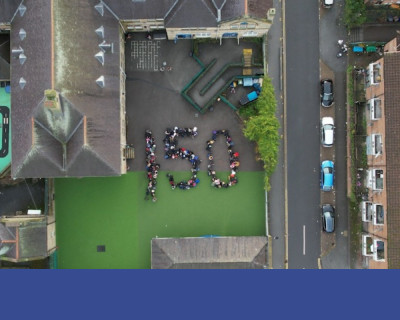PSHE (including Health and Relationship information)
Vision
Our vision at Netherthorpe Primary school is to ensure that high quality teaching and learning provides children with the knowledge and skills they need to negotiate the wider world both in terms of their next stage of education and future lives. We want our children to grow in a well- balanced way beyond the academic developing both an awareness of others and responsible independence. We want our children to develop the confidence, talents and skills, to become effective individuals, motivated learners and active citizens. We want to prepare them for the future by encouraging the development of characteristics for life such as a love of learning, resilience, integrity, team work, critical thinking and independence. We want our pupils to understand what healthy relationships look like and to be able to foster them with family members, friends and others in society. Our children are taught how to keep themselves and others safe, both online and in the world at large having healthy minds and bodies which will enable them to live full, enriched and happy lives. Our curriculum supports our children to advocate and live by values of equality, tolerance, respect and kindness. It is important that they understand their rights and responsibilities to humanity, and make valuable contributions to the society we live in.
Curriculum Aims:
- We support the development of the ‘whole child’, by helping them to understand how they are developing personally and socially as well as promoting their social, mental and physical development.
- Children develop the ability to tackle the moral, social and cultural issues that are part of growing up. Through our discreet lessons as well as wider cross curricular approach to teaching PSHE, children are taught how to keep themselves safe, physically and emotionally resulting in the acquisition of knowledge and skills, which enables children to access the wider curriculum.
- Each lesson is designed to promote discussion around a key question and children come away with a deep and nuanced understanding of the topics discussed.
- Children are encouraged to question why such rules might exist, in order that they will become adults, who feel empowered to make their own decisions around issues of interpersonal relationships, morality, health and wellbeing.
- Wherever appropriate, tangents are followed and children are given opportunities to share their own thoughts and hear those of others.
- Lessons are exploratory and allow children to test their own opinions in a safe environment, where they feel listened to.
- At the foundation of our RSHE teaching is the celebration of diversity and the promotion of inclusion.
- Children may have strong opinions about the subjects in this curriculum, many of which they may have inherited - unexamined - from other people. Teachers challenge closed-mindedness and bigotry at every opportunity, but do so with understanding and explanation.
- Lessons are built on an engaging ‘hook’, such as a picture book, video or image. By using narrative or visual catalysts, the chance of all children taking part in the lesson is increased.
- Through the use of talk frames, partner work, groups work and whole class discussions, pupils are taught how to frame their opinions and debate with each other respectfully.
- Through the use of the ‘Zones of Regulation’ approach, children are taught to manage difficult emotions, known as ‘self-regulation’.
Intent:
We have scrutinised and considered a range of factors to ensure that our PSHE curriculum is ambitious and designed to give all our learners the knowledge and cultural capital they need to succeed in life. We have ensured that teaching and learning is coherently planned and sequenced towards cumulatively sufficient knowledge and skills for future learning. The curriculum has been adapted to the needs of our children, with the input of teachers, parents and governors.
In EYFS, the Personal, social and emotional development (PSED) is recognised as one of the building blocks of success in life. It supports children’s development by helping them to interact effectively and develop positive attitudes to themselves and others. In the Revised EYFS, PSED is broken down into three aspects: Self-confidence and self-awareness, Managing feelings and behaviour and Making relationships. Children are taught to build relationships, understand and talk about their feelings, learn about 'right' and 'wrong', develop independence and ultimately feel good about themselves. By the end of Foundation, our aim is for the children to reach a good level of development. We want them to be able to show understanding of their own feelings and others and begin regulate their behaviour accordingly; to be confident to try new activities and show independence, resilience and perseverance in the face of challenge; and to work and play co-operatively, forming positive attachments.
In KS1 and KS2, the knowledge and skills have been organised into three main themes: ‘Relationships’, ‘Living in the Wider World’ and ‘Health and Well Being’. The knowledge and skills are then further broken down into the following contexts ‘family and friends’ (relationships), ‘Online Safety and Community’ (Living in the Wider World) and ‘Physical and Mental Health’ (Health and Well-Being). Our experienced teachers systematically and explicitly ensure that children are acquiring the intended knowledge and skills in the above areas. Each year group covers content related to each theme every year, ensuring that a spiral programme is in place: one that revisits themes, gradually extending thinking, expanding knowledge and developing skills. We avoid, where possible, ‘one-off’, stand-alone sessions that will not be revisited, and instead make constant links to previous learning and experiences, and build upon these. By the end of key stage two, pupils will have an in-depth knowledge of all themes and will be well-equipped for their next stage in life.
Children in EYFS, KS1 and KS2 are also taught the ‘Zones of Regulation’ which is a framework used to develop emotional regulation. Four coloured zones are used to categorize emotions which the children then use to identify how they are feeling and implement strategies which help them to get back to the green zone (demonstrating alertness, control and good learning behaviour).
As a school we promote the use of our ‘Learning Muscles’ and a ‘Growth Mindset’ these principles underpin our whole school curriculum and children apply the skills of concentration, resilience, co-operation, curiosity, having a go, using their imaginations, making improvements and enjoying their learning.
By the end of Key Stage one and two, our children are expected to know, apply and understand the matters, skills and processes specified in the relevant programmes of study.







